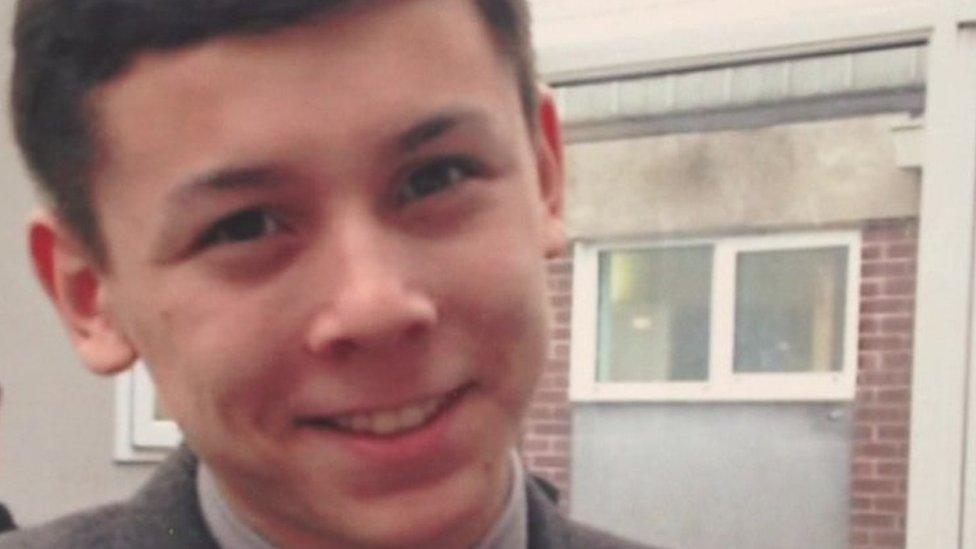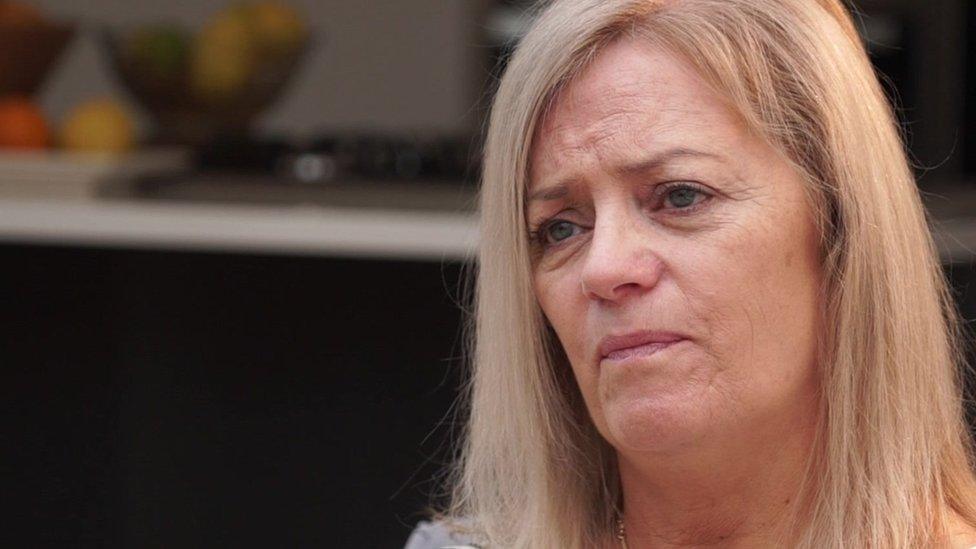Drop in rail suicides after new Samaritans course
- Published

Oscar Phillips, who took his own life in January 2015
There were 237 suicides and suspected suicides on Britain's railways last year.
A horrible number, but it is going down - and part of the reason must be the large numbers of Network Rail staff and transport police now going on a suicide-prevention course from the Samaritans.
It teaches them what to do if they see someone looking vulnerable.
What should they say? What should they not say? Because the Samaritans stress that simply talking and sharing is often the first step to making a full recovery.
The number of "potentially life-saving interventions" from police and staff shot up last year.
They stepped in to talk to someone four times a day on average - and now rail suicides are at their lowest level since 2010.
Andy Wellbeloved has worked on the railways for decades. A few years ago he was called in when a man was threatening to jump under a train.
"I was nervous," he says. "Worried about saying the wrong thing."
Andy Wellbeloved explains how training provided by the Samaritans helped him intervene in a suicide attempt
But Andy learned something on the Samaritans course, external that helped him cope.
"I can remember the instructor actually saying, don't say, 'I know how you feel.' That's always stuck in my mind because it's the type of thing I would have said."
He admits he was cynical before going on the course. He's normally one of the first on the scene after a suicide.
"I did think that it might possibly be a waste of time, because I thought anyone who wants to take their own life on the railway is selfish, because of all the people it affects.
"But after doing the course that did change my mind. I sort of realised that people can be in such a bad state of mind they don't realise they're affecting someone else.
"And it gives you the confidence to approach someone."

Carmel Giansante
That support is echoed by Carmel Giansante, a mum whose 16-year-old son Oscar took his life on the railway in 2015.
I went to see Carmel, who's setting up a charity in Oscar's name, called the Oscar Phillips Foundation, external.
Its aim is to teach school children how to cope with life's stresses and how to ask for help.
And that's the critical part, according to the experts. They want to get the message out there that suicide is preventable.
Carmel says that Oscar masked how he was feeling and showed absolutely no sign of being depressed.
He was doing well at school, popular, had a loving family. He was a lovely, caring young man.
"You feel like your heart has been turned into glass and shattered," Carmel said. She also says the course will save lives.
"If it was you that was in that vulnerable position, how would you feel if someone didn't come up and talk to you and you were allowed to go and take your own life.
"It's horrific isn't it... you'd want someone... you'd want to be able to thank someone one day."